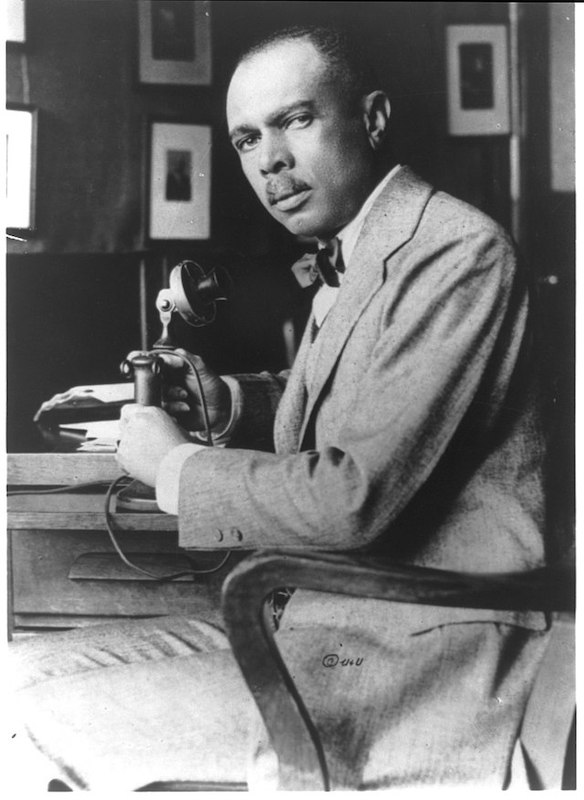Readings for the feast of James Weldon Johnson, Friday, June 25, 2021:
(Author’s Note: Officially, the feast day of James Weldon Johnson is still a bit in limbo, since General Convention has not yet approved the calendar of feast days in A Great Cloud of Witnesses. That said, Johnson’s life is such an amazing display of God’s gifts and talents shining through one person, he deserves “off-label” mention, in my opinion.–M. Evans.)
The reading from Sirach describes many of the characteristics of someone we would deem to be a wise person. So many of these characteristics are personified in James Weldon Johnson’s life.
Johnson was born in Jacksonville, Florida in 1871, to a Bahamian mother and American father. His family valued education, culture, and public service (his maternal grandfather was the first person of color elected to the Bahamian legislature), and his family had enough means to provide as good an education that was available in the segregated society of that time. He graduated from the Edwin M. Stanton school (now the Stanton College Preparatory School) and Atlanta University. Although he felt called at a young age to be a voice in elevating the status of African-Americans (he returned to the Stanton school as a teacher after his graduation), his life took an interesting detour around the first decade of the 20th century. He and his brother, Rosemond, wrote show tunes in New York City for a few years! It was during this period (1900), Rosemond set James’ poem Lift Ev’ry Voice and Sing to music, resulting in what many of us would consider the brightest star in James Weldon Johnson’s crown.
What you may not know, though, is that the Johnson brothers also wrote the popular song, Dem Bones! Ironically, many of the songs they composed, we would now say they display undertones of racist American culture. Still, it’s intriguing that part of his life and experience came from the world of Broadway and theater culture.
All this changed in 1906, when Theodore Roosevelt appointed him as consul of Puerto Cabello, Venezuela. In this post, and his subsequent post to Corinto, Nicaragua, he proved his mettle as an effective diplomat under high pressure situations. Upon returning to the United States, he returned to education and also read law, becoming the first African-American admitted to the Florida bar since Reconstruction. His ultimate calling–NAACP leader–began around 1916 or 1917, first as a field officer, but eventually rising to Executive Director. He was the primary organizer of the Silent Protest Parade in 1917 and a major voice in supporting the Dyer Anti-Lynching Bill in 1921. Unfortunately, that bill was blocked in the Senate, and an anti-lynching bill has never yet been passed by Congress.
After his service with the NAACP, Johnson returned to academia, accepting the Spence Chair of Creative Literature at Fisk University. Unfortunately, his life was cut short in 1938 when, as a passenger in a car his wife was driving, was hit by a train. One can only guess what contributions he could have made to society in his twilight years.
James Weldon Johnson was a man who used every gift God gave him towards the betterment of others, at a time his gifts were not always appreciated. Yet his work is not finished. How might we support his legacy?
Maria Evans splits her week between being a pathologist and laboratory director in Kirksville, MO, and gratefully serving in the Episcopal Diocese of Missouri , as the Interim Pastor at Christ Episcopal Church, Rolla, MO.

